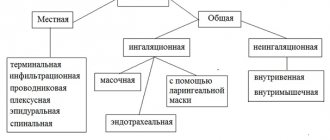Briefly about the IVF method
The essence of IVF is that fertilization of the egg takes place outside the mother’s body. The first successful procedure took place in 1977, and the following year the world saw its first test-tube baby. Nowadays, few people can be surprised by this procedure. More and more desperate couples turn to doctors and become happy parents of such babies.
But before going to the clinic, future parents want to weigh the Pros and Cons. They want to know whether their child will be healthy, without any inherited developmental pathologies, and whether the method of conception affects the development of the child. Sometimes there are even such absurd experiences - can IVF children themselves become parents?
Unfortunately, some myths are still alive, and some individuals believe that children after IVF are infertile. But I hasten to please you, this is complete nonsense! The first girl who was born using IVF (“invitro”) successfully became pregnant naturally and became a mother.
Statistics prove that the ability to get pregnant directly depends on the state of health, lifestyle, and not on the method of conception of the parents themselves. Therefore, no matter what anyone tells you, let’s trust the facts!
What difficulties can you encounter after the procedure?
One of the points that interests most people who want to use the in vitro fertilization method is the consequences of the procedure for the newborn and for the mother herself. Since the use of IVF has a relatively recent history, scientific research on this issue is still being carried out. But still, some features have been known for a long time, so let's look at already confirmed data.
What does IVF mean for a woman?
As a rule, years of waiting, unsuccessful methods of infertility treatment, many years of trying to get pregnant - this is not the whole list of what some women go through in order to become a mother. Therefore, the main consequence of in vitro fertilization for a woman is a long-awaited pregnancy. The other side of the coin is that not everyone gets it right the first time. Sometimes you have to do this procedure again and again. Not all couples can withstand such tests... Some give up and lose hope, others fall into depression.
There's really no need to despair. Worldwide practitioners in in vitro fertilization explain that:
- in most cases, pregnancy does not occur immediately after the first procedure - and this is normal;
- in some women, after an unsuccessful attempt, on the contrary, hormonal levels normalize, and conception occurs naturally.
What negative consequences does the IVF procedure itself have for the health of the expectant mother:
- risk of infection;
- ruptures of cysts in the ovaries;
- the likelihood of developing an ectopic pregnancy;
- bladder damage, etc.
Scientists have proven that women who have used in vitro fertilization are more likely to develop ovarian cancer.
If a woman aged 30 years with a short period of infertility decides to use IVF, most likely her pregnancy will proceed in the same way as a normal one. But a woman over forty with a whole “bouquet” of chronic diseases may have difficulties with pregnancy. Therefore, such patients are especially strictly monitored by doctors.
Also, due to the fact that during in vitro fertilization several embryos are often transferred in order to increase the chances of a favorable result, multiple pregnancies may occur. And we all understand that the older the expectant mother, the higher the risk of premature birth, bleeding, weak labor, etc. For the children themselves, multiple pregnancies are also dangerous - one of them may die or be born weak. In general, this is still a test. But nothing can stop parents eager to give birth to their own little one! They are ready to go through a lot just to see their baby, and they are absolutely right in this.
Does IVF affect the future health of the baby?
Negative consequences for newborns during multiple pregnancy include:
- neurological disorders;
- development of pathologies in the heart, in the functioning of the skeletal and muscular systems;
- low birth weight.
I would like to note that the same dangers await twins conceived naturally if their mother is no longer young.
To significantly reduce the risk of developing any problems during fertilization and pregnancy, future parents should choose a clinic and doctor wisely. An experienced specialist will always warn about possible consequences and offer to undergo a full examination to identify all hidden current diseases and genetic pathologies. Moreover, both parents must undergo a consultation with a geneticist! All this will help minimize the risks of developing fetal pathology.
The main stages of IVF
- The first stage involves a full examination of partners who cannot conceive a child. It involves examination by specialists and passing a number of necessary tests (general blood and urine tests, blood to determine group affiliation and Rh factor, determination of infectious markers, etc.). In addition, you need to undergo a number of additional examinations (X-ray, ultrasound, colposcopy, etc.). Such a complete examination allows you to verify the rationality of using IVF. If a decision is made to carry out artificial insemination, proceed to the next stage.
- The second step is to prepare and collect material (sex cells) from both partners. For a woman, this means taking a course of superovulation simulation. It allows several germ cells to mature at once in the ovarian follicles. After all, it is known that during one menstrual cycle in most women only one egg matures. This is not enough for the IVF procedure. A woman's mature eggs are collected directly from the ovary. To do this, a special manipulation is used using a puncture needle, which is inserted into the ovary. Usually several eggs are taken to produce several embryos. Various technologies can be used to collect male reproductive cells, most often it is simply masturbation. If male infertility occurs, just like in women, invasive sperm collection techniques can be used.
- The next stage of in vitro fertilization is the actual fertilization of female eggs with sperm in the laboratory.
- At the last stage, the resulting embryos are delivered to the woman’s uterine cavity. Often, several embryos are transferred to increase the chance of implantation (attachment in the uterus). This is why twins after IVF are observed much more often than under normal conditions of conception.
Are developmental features noticeable in test tube children?
In the womb, the development of a baby conceived in a test tube occurs completely naturally. He also gains weight, grows, kicks his mother from the inside or sucks his own finger)) Any deviations can be caused by indirect factors, and not by the fact that the child is conceived “in vitro”. Only healthy embryos are returned to the female body, which significantly reduces the risk of inheriting any serious diseases. And in the case of natural conception, it is not possible to exclude all this.
Now we can say with confidence that children born after IVF do not have any developmental features. Most babies are so long-awaited that parents pay a lot of attention to them, which completely eliminates the possibility of falling behind their peers. And even on the contrary, such overprotection leads to the fact that ecoshkins are not only no different from their friends, but even on the contrary, many of them are ahead of them in development.
Planning the gender of the future baby
Some parents, planning a pregnancy, ask the question: How to conceive a baby of a certain gender? I have already told you about how to calculate the ovulation of a boy or a girl using the calendar , but this method still will not give a 100% guarantee of obtaining the expected result. But with in vitro fertilization, choosing the sex of the child is quite possible! After all, before implanting a healthy embryo into a woman, a medical worker examines all the genetic material. And nothing prevents him from paying attention to his chromosome number at the request of his parents.
Sometimes planning the gender of the future baby is not a whim of the parents, but a necessity for medical reasons. If one of the adults has a hereditary disease, then doctors must assess the likelihood of it occurring in the unborn child. Some genetic pathologies are transmitted strictly only to boys or only to girls. The IVF method makes it possible to choose the embryo that will be more adapted to life. Therefore, consultation with a geneticist in this case is mandatory!
Another bonus of IVF is that parents can choose the expected birthday of the future child. And with natural fertilization, the date can only be approximate.
Genetic differences.
The cause of congenital diseases in children after IVF does not depend on the fertilization process itself, but only on the body of the woman carrying the pregnancy and the gene pool of the parents. To obtain an embryo, the highest quality eggs and sperm are selected, which then undergoes a full test and genetic diagnosis within 4 days, which minimizes the risk of genetic defects. The risk of congenital pathologies when using IVF is reduced.
If donor cells or sperm are not used, the embryo will have the hereditary traits of the parents.
Even before the fertilized cell is placed in the uterus of the expectant mother, the sex of the child can be determined. This is used to exclude the birth of a baby with hereditary diseases transmitted through the male line. In some countries, such determination and disclosure of the gender of the unborn child is prohibited.
Let's summarize.
There are no genetic diseases unique to children conceived through IVF.
Health of eco-friendly children
Despite all the examinations and precautions, IVF children, just like babies born through natural conception, can inherit some of the diseases of their parents. Also, for the successful completion of a complex, long-awaited pregnancy from IVF, doctors recommend that a woman give birth by cesarean section. In our society, there is still debate about whether the fact that caesarean babies did not pass through the birth canal affects their future health and even temperament. I believe that the way a baby is born does not in any way “imprint” on his life. The experience of my good friends also testifies to this.
Relatively recently, my best friend became a happy mother of healthy opposite-sex twins after IVF. Yes, unfortunately, immediately after birth, the children had some health problems, but all these difficulties were associated not with the method of their conception, but with factors that complicate any successful pregnancy:
- mother's age after 40 years;
- multiple pregnancy;
- premature caesarean section.
To my great relief, the kids successfully coped with all the difficulties and are now absolutely healthy! For their first year, I gave them these glowing teddy bears ! The kids were delighted, and my friend later told me that they now fall asleep only with this toy. Who would doubt it)) With such a teddy bear I would fall asleep))
Let's look at what other difficulties new parents may face before their baby is born.
Debunking myths
Everyone knows that the course of pregnancy and the outcome of childbirth directly depends on the age and health status of the expectant mother. And if babies are born prematurely, then the problem should be looked for not in the in vitro fertilization procedure, but in concomitant diseases or hormonal changes in the body. But it is much easier for doubters to believe in fables than to understand the intricacies of the problem. Sometimes it gets to the point of absurdity... Some religious people consider such kids to be “people without a soul.” In my opinion, these are terrible sayings. And you should not pay attention to such conclusions.
Recently I myself witnessed a strange situation. At the hairdresser, I overheard a conversation between two women discussing an article about in vitro fertilization. The phrase of one of the ladies talking that IVF children do not live long made me turn around to look at the person who thought of saying such a thing. So far, no medical luminary has made such a sad discovery. The first test tube babies happily create families and are still healthy. And I believe with all my heart that this will continue!
IVF children - consequences in the future include genetic abnormalities and developmental delays
In this case, one must take into account the fact that the risk of developing such pathologies exists regardless of the method of conception. If we consider a specific situation when IVF is done, it is worth noting that, first of all, this is a high-tech procedure. All artificially produced embryos are tested for genetic abnormalities. Only after this procedure do specialists carry out replanting.
Doctors say that risk factors can exist both in the case of pregnancy after IVF and in natural pregnancy. These factors can have a negative impact on the child's health.
Risk factors include:
- General health of the expectant mother and future father;
- Age indicators;
- The presence of genetic and chronic pathologies;
- Environmental conditions;
- Bad habits and others.










